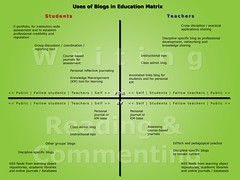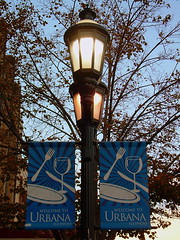 Image via Wikipedia
Image via Wikipedia
Under the Individuals with Disabilities Education Act, or "IDEA," the category of disability plays one role only. To be eligible for special education and related services, a child must first have one of the enumerated disabilities and "by reason thereof" be in need of special education. IDEA Section 602(3).
That's it. Period. End of discussion.
Yet I have talked to many special education professionals who believe that services are determined by the category of disability. Once again, this is not correct. Once a child is eligible for special education and related services, she is eligible. Period. The question becomes what are the child's educational needs, {Needs too is a term of art -the question is what does the child need in order to achieve some (meaningful) educational benefit.}
Despite this small bit of clarity in the metaphysical realm that is special education law, I have had whole hearings where all parties agreed that the child was eligible under one category of disability, but the parents also wanted her "labeled" autistic. I kept asking what it mattered, but to no avail. Similarly I have seen school districts that have certain services only available to those children in the autism program, etc.
The notion of treating whole groups of people the same is inconsistent with the concept of individuality embodied in IDEA. Let's keep the "I" in IDEA and IEP! Indeed, the idea that it would be right to treat groups of people exactly the same because they share a category of disability is rooted in stereotyping. Stereotyping underlies most types of discrimination. Each child with a disability is an individual, and their individual needs , rather than their category of disability, should drive their educational program.
In the next post in this series, we will look at some of the caselaw on this issue.
That's it. Period. End of discussion.
Yet I have talked to many special education professionals who believe that services are determined by the category of disability. Once again, this is not correct. Once a child is eligible for special education and related services, she is eligible. Period. The question becomes what are the child's educational needs, {Needs too is a term of art -the question is what does the child need in order to achieve some (meaningful) educational benefit.}
Despite this small bit of clarity in the metaphysical realm that is special education law, I have had whole hearings where all parties agreed that the child was eligible under one category of disability, but the parents also wanted her "labeled" autistic. I kept asking what it mattered, but to no avail. Similarly I have seen school districts that have certain services only available to those children in the autism program, etc.
The notion of treating whole groups of people the same is inconsistent with the concept of individuality embodied in IDEA. Let's keep the "I" in IDEA and IEP! Indeed, the idea that it would be right to treat groups of people exactly the same because they share a category of disability is rooted in stereotyping. Stereotyping underlies most types of discrimination. Each child with a disability is an individual, and their individual needs , rather than their category of disability, should drive their educational program.
In the next post in this series, we will look at some of the caselaw on this issue.





















